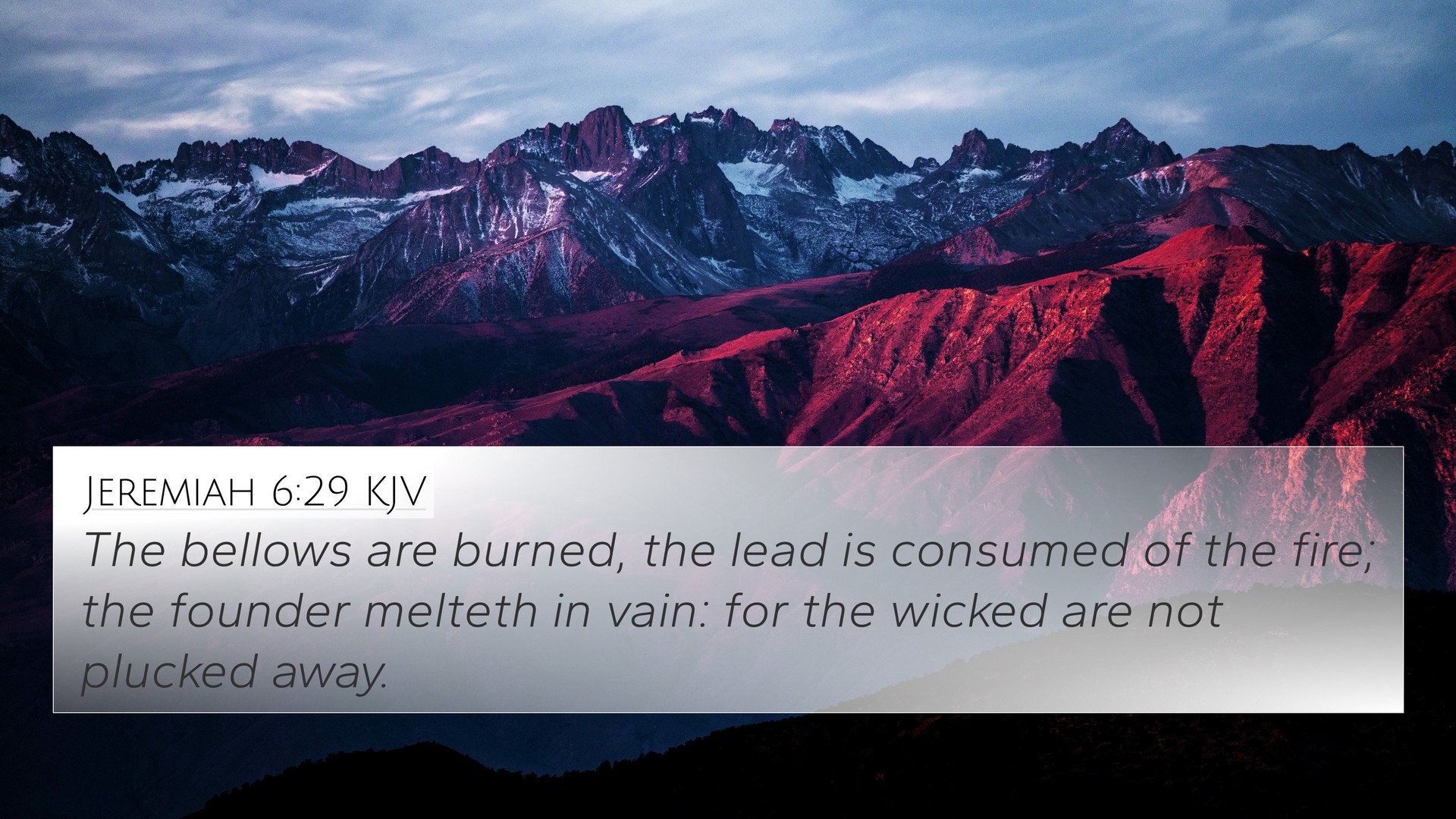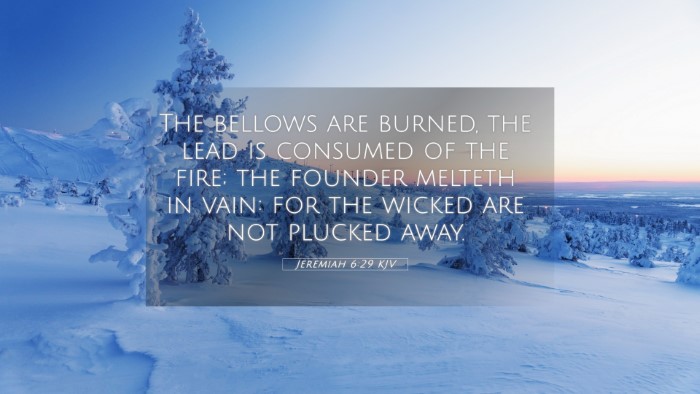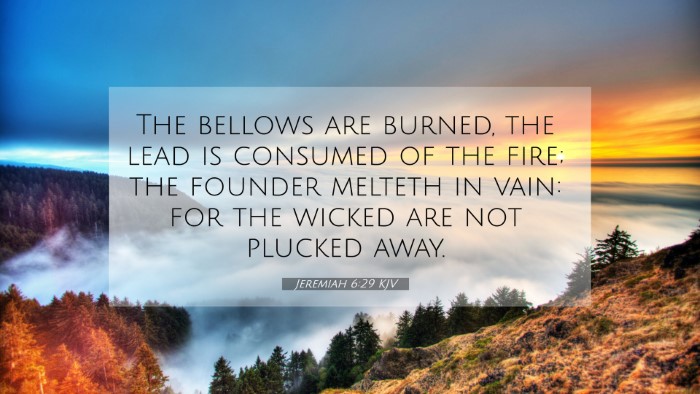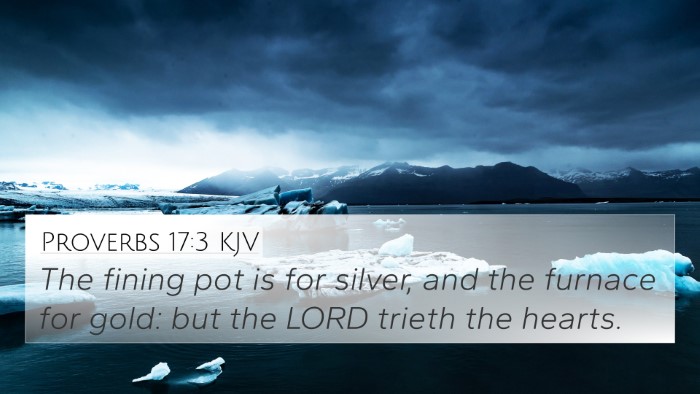Understanding Jeremiah 6:29
Jeremiah 6:29 reads: "The bellows are burned, the lead is consumed of the fire; the founder melteth in vain: for the wicked are not plucked away."
This verse presents a vivid image of the futile efforts of the metalworker, indicating a deeper spiritual truth about the people of Judah during Jeremiah’s time. The concept of refining and purification through fire is a recurring theme in the Bible, often used to illustrate God's judgment and the need for repentance.
Summary of Key Insights
Based on the commentaries by Matthew Henry, Albert Barnes, and Adam Clarke, the following themes emerge:
- Futility of Efforts: The verse points out that the efforts to refine and purify are in vain due to the persistent wickedness of the people. The founder’s work is compared to God’s attempts to correct and purify His people, which are met with resistance.
- Divine Judgment: The imagery of the foundry symbolizes God's judgment. Just as metal is subjected to fire, the people were subjected to divine scrutiny, revealing their unworthiness.
- Refinement Process: The burning of the bellows and consumption of lead highlights the intensity of God's refining process. This metaphor signifies how God seeks to purify His people but finds their hearts unyielding.
- Call to Repentance: The verse serves as a plea for the people to acknowledge their sins and turn back to God. It emphasizes the importance of repentance in the face of impending judgment.
- Hope in Restoration: Despite the grim message, the call for repentance implies an opportunity for restoration, suggesting that if the people were to turn back, they could be redeemed.
Cross-References
The following Bible verses provide thematic connections for a deeper understanding of Jeremiah 6:29:
- Isaiah 1:25: God speaks of refining His people to remove their impurities.
- Malachi 3:3: The Lord will act as a refiner and purifier of silver.
- 1 Peter 1:7: The trial of faith being more precious than gold that perishes.
- Proverbs 25:4: Take away the dross from the silver, and it shall go to the silversmith for a vessel.
- Zechariah 13:9: The process of refining leads to a purified people who call on God’s name.
- Hebrews 12:29: Our God is a consuming fire, indicating His judgment and purifying nature.
- Psalm 66:10: God tests us as silver is tested, forming a direct link to the theme of purification.
Thematic Connections and Insights
The repeated mention of fire in the context of judgment and purification in various passages reinforces the understanding that the purpose is not merely punishment but the fostering of spiritual growth and true repentance. The call to recognize our failings is vital:
- The passage evokes reflections on how spiritual refinement often requires harsh trials that reveal the true nature of one’s faith.
- Just as metal is purified, individuals are called to undergo life’s challenges with the understanding that these are tools for spiritual growth.
Tools for Bible Cross-Referencing
For those engaging in deeper Bible study, introducing tools that assist with cross-referencing can significantly enhance scriptural understanding:
- Bible Concordance: A comprehensive resource that aids in finding specific words and their occurrences across scripture.
- Bible Cross-Reference Guide: These guides often list verses thematically, allowing for easier connections between biblical texts.
- Cross-Reference Bible Study: Methods to analyze passages considering related scriptures.
- Identifying Connections: Understanding how different passages relate to each other results in a more profound comprehension of biblical themes.
Conclusion
In conclusion, Jeremiah 6:29 serves as a powerful reminder of the cost of unrepentant sin and the gracious opportunity for refinement and restoration. The interconnectedness of scriptures around this theme allows readers to grasp the holistic message of God’s desire for holiness in His people. Engaging in comparative Bible verse analysis enriches one’s understanding of the overarching narrative of scripture, underscoring the themes of judgment, purification, and ultimately, hope.











